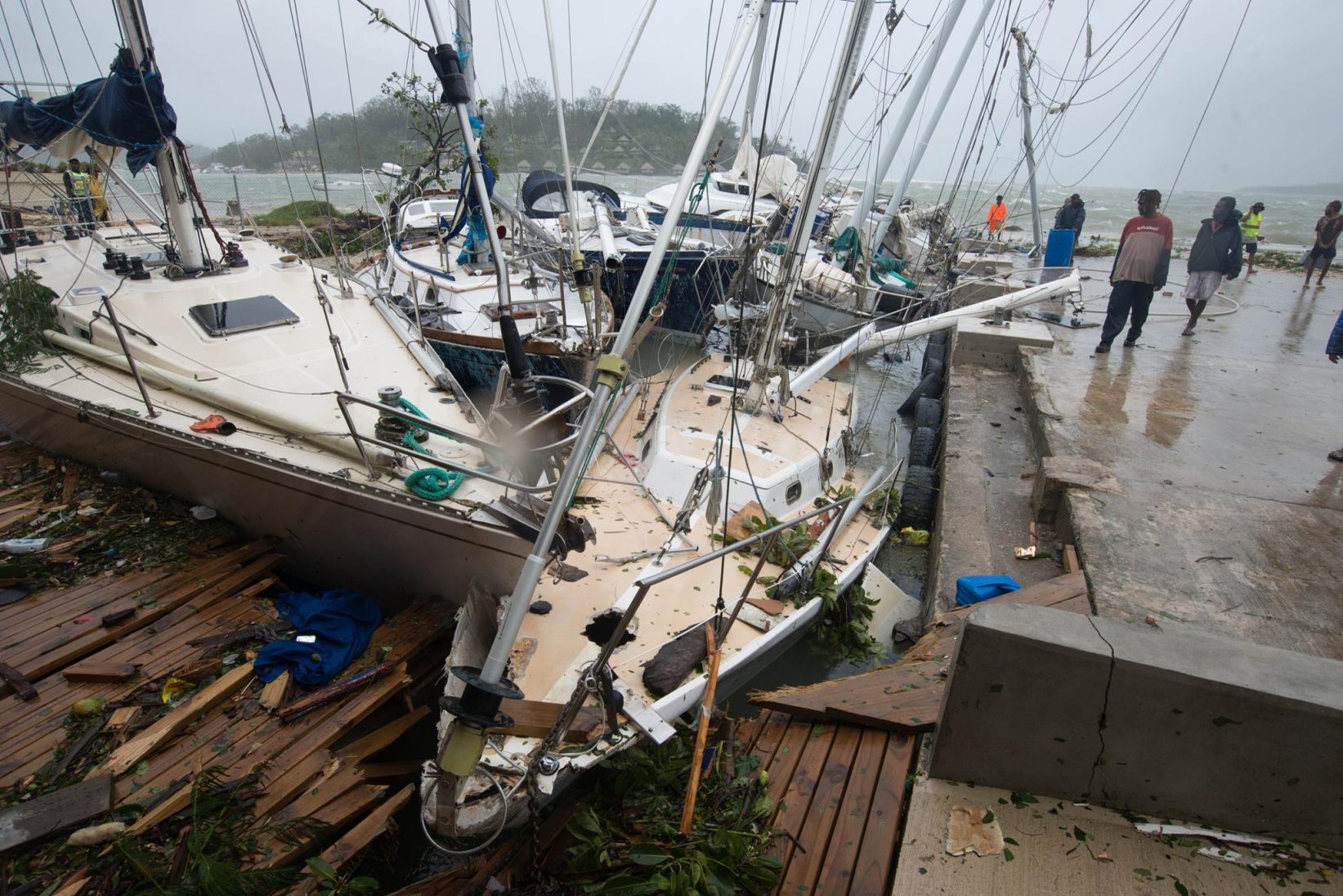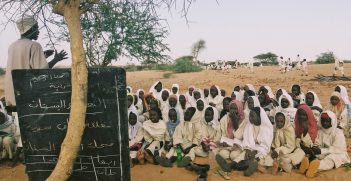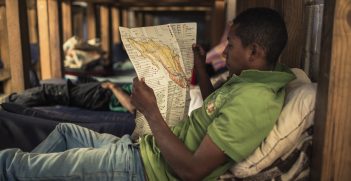Why Disasters Should be the Private Sector’s Business

Natural disasters are increasing in frequency and intensity, and the countries of the Southwest Pacific have seen their fare share in recent years. We need to engage with local businesses to help prepare for the next disaster.
I remember the weeks and months after Cyclone Pam hit Vanuatu in 2015 all too clearly. Villages were wiped out. Families were torn apart. Businesses destroyed.
There was no power, no water and no communications. It meant no computers, no banks and no access to funds. The Red Cross was unable to purchase any of the items that were needed to coordinate a response, which highlighted a need for strong relationships with local suppliers.
Given how hard businesses are hit by disasters, it’s high time to involve the local business community in responding to them. In Vanuatu and across the Pacific the International Red Cross Red Crescent Movement is aiming to develop more efficient supply and procurement systems at the national and local level for the many goods and services needed when responding to disasters. The reason is simple: it’s necessary to increase, wherever possible, purchasing from local suppliers, which is why the Vanuatu Red Cross is working on the Pacific Local Supplier Engagement initiative.
When disaster strikes, it can affect every part of daily life. Damaged houses require tools and materials such as nails and timber for rebuilding. Tarpaulins are needed to provide temporary shelter. When water supply systems get destroyed or damaged in cyclones and floods, there is the need for pipes and plumbing to repair them.
Cyclones like Pam that wreak havoc across Vanuatu’s islands leave tens of thousands of people without household items that are needed to survive: pots and pans, mattresses, blankets and much more. Businesses supply all these items but many of them are purchased overseas and transported into the Pacific, often at a premium cost. If there were arrangements in place between local businesses and aid agencies, it would be possible to buy, store and transport whatever was needed locally, giving a boost to economies when it’s needed most.
Disaster management can be a difficult business. When emergencies hit, there are massive strains on both the systems and the resources needed to get back on track. Everything winds to a halt; there’s often breakdown and chaos. The best time to plan, organise and prepare for disasters is well before they strike. The first step is making sure that the most is made of all the skills and resources in Vanuatu, across all sectors. Preparing for disasters must be a part of everyday life in Vanuatu, from schools to business centres, villages and everywhere in between.
Careful research is needed to analyse, plan and build strong systems, with stronger partnerships. The Local Supplier Engagement Initiative is all about building strong partnerships between businesses, the government, emergency and aid sectors, but also, importantly, community leaders. International friends, the Australian government and Australian Red Cross have been reliable partners for the long term and have given important support through recent crises.
This project, while managed by the Red Cross, embraces the entire disaster management sector in Vanuatu, both non-government and government. Over the past year, these sectors have come together around a common goal of strengthening and building new partnerships with local businesses. We want to boost the local economy and save lives. It’s part of the increased focus on ‘localisation’: this is increasing national self-reliance in disaster planning, management and response. This is a goal not only of the International Red Cross Red Crescent Movement, but also of leaders across the Pacific, including the Vanuatu government.
The Vanuatu National Disaster Management Office has set a goal of being able to respond to low- and medium-impact disasters in Vanuatu by making the most of local, provincial and national resources. Relief supplies and goods can and must be sourced from local businesses where possible. It’s necessary to know what supplies are available and how they can be delivered to where they are needed. And a digital online warehouse is one way to make this happen. Yet it’s much more than what stock is sitting on the shelves. It’s also learning more about procurement processes, regulations and product standards.
All of this has been made possible by a Red Cross initiative which was a winner of the Australian government’s Pacific Humanitarian Challenge launched by the Department of Foreign Affairs and Trade. Practical initiatives like this—developing an online, digital portal linking business, emergency and aid sectors—are of mutual benefit. It means greater resilience for our communities and stronger economies in Vanuatu and across the Pacific.
Thinking of new and improved ways of working is at the heart of this initiative to engage local businesses and suppliers. It’s time for greater engagement in that spirit, of trying and testing new relationships and ways of getting things done. We can save lives and prevent suffering by boosting the local economies. Let’s do this well before the next big cyclone heads our way.
Jacqueline de Gaillande is CEO of Vanuatu Red Cross.
This article is published under a Creative Commons Licence and may be republished with attribution.




